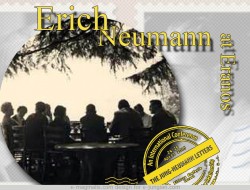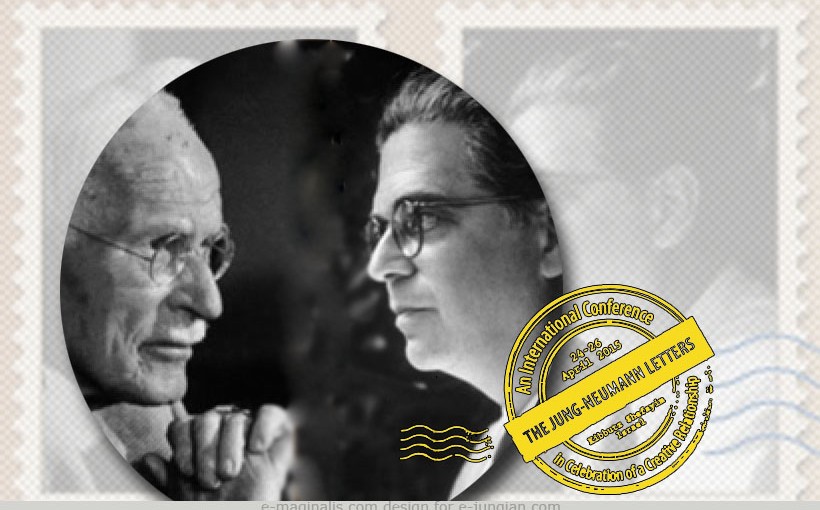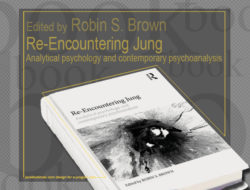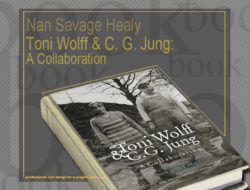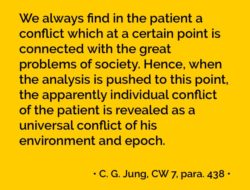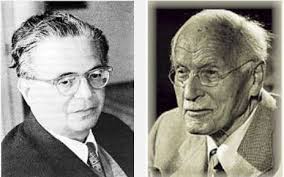
E. Neumann, C. G. Jung
Conferences in Jungian field are always a unique possibility to meet for people coming from different parts of the world and as such they always give us many reasons to celebrate. The one we had a pleasure to report to you the last week – The Jung-Neumann Letters Conference in Kibbutz Shefayim in Israel – added one more reason for celebration: a long awaited publication of letters exchanged in life long friendship between Carl Gustav Jung and Erich Neumann. We are going to come back to this special event many times at our website because of the important meaning Erich Neumann carry for analytical psychology. This meaning comes from both the content of his works and the way they influenced the Jungian field, and from the personality of their creator, which can be felt in his writings, and maybe the most vividly in his letters.
Erich Neumann was probably the only follower of Carl Gustav Jung that established his own group of followers. In many settings where he lectured he soon become a dominant figure because of the depth and richness of his personality. This could be felt by many of us – among them myself – in the course of our Jungian studies, when we were influenced by the spirit of his writings. This is how Neumann’s friend Gerhard Adler wrote about him:
Erich Neumann and I were connected by a close friendship of almost 40 years. Even as a student and young man his creative personality was clear and impressive. (…) How many nights did we not spend conversing intensively and never ending about all sorts of potential live-questions! And in all of those instances the depth and breadth of his view, the intensity of his passionate nature, contributed original and creative answers.[1]
The most probably Neumann first met Jung in 1933 at the seminar Jung held in Berlin. Soon after that Neumann started several months long analysis with Jung about which we find, from the short note from Jung to Neumann dated 11 September 1933: “Dear Doctor, I have reserved and hour’s appointment for you on Tuesday, 3rd October at 4 pm. Yours respectfully, C. G. Jung.” This was on Neumann’s way to Palestine where he left as a dedicated Zionist. At the time of their first meetings Jung was at the height of his career, being one of the leading psychologists of his time and Neumann was just a promising psychologist to be, that has just finished his studies.
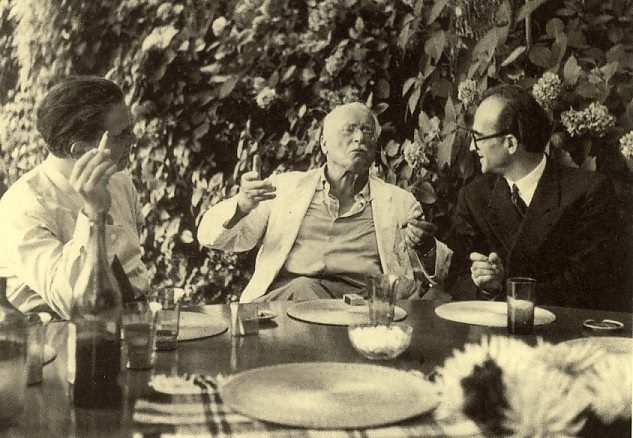
E. Neumann, C. G. Jung and M. Eliade in Eranos, Ascona.
One is then even more impressed with the character of their exchange from the beginnings of their correspondence, when Neumann confronts Jung in a Mars-like way, as he observes himself at the end of the letter from 1934 where he forces Jung to recognize that he also falls under German relationship towards Jews. The confrontation was a reaction to Jung’s article “The State of Psychotherapy Today” published in the journal of the General Medical Society for Psychotherapy. In Jung’s response we see that he falls under appeal of younger colleague and is able to accept confrontation coming from so much younger professional in his field. This strong but thoughtful exchange shows the strong character of the young doctor and his deep understanding of discussed issues. This also begins their long exchange in relation to Jewish issues, as from the beginning Neumann speaks to Jung as a Jew and addresses issues relating to Jewish religion, history and culture.
Their father-son like relationship is very much different than the one between Jung and Freud, where we find the dominance of father figure and the pressure on the younger colleague to give up his own ideas and remain faithful. Here it is different – there is the place for confrontation, disappointment, respect and understanding, which makes this relationship a true friendship. During the conference we could experience this in the course of a dramatic reading from the Jung-Neumann Letters presented by Paul Brutsche (as C. G. Jung), John Hill (as Erich Neumann) and Dariane Pictet as “the voices of the feminine”. Based on the content of Analytical Psychology in Exile it presented a summery of Jung and Neumann relationship from its beginning to Neumann’s death in 1960 and we hope our readers will have a possibility to watch it in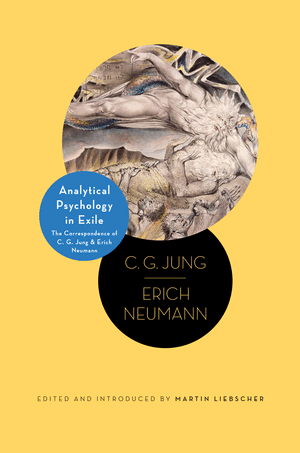 the future on the occasions of future Jungian conferences.
the future on the occasions of future Jungian conferences.
We can follow the history of this friendship in Analytical Psychology in Exile, and as you will see in our future posts that will relate to the conference itself and to different aspects connected to works and history of Erich Neumann, it gives us an important insight both into the analytical psychology theory and its organizational history.
Waiting for the publication of the conference Proceedings and working on interviews we will have a pleasure to present you at our website within the next weeks, we are going to come back once a week to this special event. The feeling of special atmosphere of this meeting was shared by its participants to which contributed the perfect preparation of the event and the content of presented lectures as well as the possibility to have an alive connection to the history of analytical psychology thanks to presented material and thanks to the meeting with members of Jung, Neumann and Kirsch families. The next week we are going to tell you more about Neumann’s contribution to Eranos conferences and his relationships with analytical psychology world from that time.
[1] Gerhard Adler (1980), Erich Neumann: 1905-1960, p. 181, as quoted in „Analytical Psychology in Exile. The Correspondence of C. G. Jung and Erich Neumann”, in: Introduction.
Malgorzata Kalinowska
Jungian analyst
e-jungian.com Editor-In-Chief
„Analytical Psychology in Exile”
More posts on Jung-Neumann Letters Conference
The Jung-Neumann Letters – A Book Launch and International Conference, Israel 2015
The Long awaited publication of the Correspondence between C. G. Jung and Erich Neumann, the Jung-Neumann Letters edited by Martin Liebscher, were published March 2015 by Princeton University Press. To mark this important event an international conference was held jointly sponsored by The Foundation for the Works of C. G. Jung, the Neumann family, The Philemon Foundation, the International Association of Analytical Psychology, and The Israel Institute of Jungian Psychology. The invited speakers presented recent discoveries and new perspectives pertaining to the correspondence, the relationship between Jung and Neumann, and the broad range issues they discussed. The conference took place in Kibbutz Shefayim, 20 minutes north of Tel Aviv, the home of Erich Neumann.
Tags: C. G. Jung, Erich Neumann, Jung-Neumann Letters, letters













